A large and growing body of research indicates that bullying is a complex and challenging problem to shift. But at John McGlashan College, we have a ‘zero tolerance’ culture with robust school-wide interventions which deal effectively with this behaviour.

Most researchers define bullying as repeated actions intended to cause distress or harm grounded in an imbalance of power.
Bullying can occur in three forms:
- face-to-face
- covert
- online
Consequences for those on the receiving end include:
- feeling unsafe at school
- psychological distress
- lower levels of academic achievement
- lower levels of school attendance
Bullying has been demonstrated to have a negative impact on those who witness it as bystanders and statistics also show that students who bully others are likelier to continue their aggressive behaviour later in life.
Our approach includes education, allowing students to develop social and emotional competencies and learn appropriate ways to respond to bullying.
Five key strategies emerge from the literature as critical components of our whole-school approach:
- establishing school-wide anti-bullying practices
- focusing on preventing bullying in key environments, including the classroom and environs
- promoting a culture of reporting
- partnering with parents and carers
- promoting 'upstander' behaviour
I encourage carers and students to report incidents or situations of student maltreatment, harassment, aggression, violence or misuse of technology. Reporting is crucial to our effective anti-bullying interventions and can be one of the most powerful and effective actions taken. All discussions are confidential.
Passive bystanders are actively encouraged to be 'upstanders' and defenders of bullied students. We continually promote 'upstander' behaviour as a core tenet of how we do things at McGlashan. Only when we work together as a community can we create a culture where bullying is totally unacceptable.
' We few, we happy few, we band of brothers.
Junior parent-teacher interviews were held last week and will be followed by senior interviews prior to the Easter break. Interim reports have been circulated, so if you have any concerns about your son's progress, we have an 'open door' policy. Please do not hesitate to contact the year level Dean.
Kindest regards,
Neil Garry
Principal










 Open Event Registration - Interested in enrolling?
Open Event Registration - Interested in enrolling? Employment opportunities - click if you're interested in working at McGlashan.
Employment opportunities - click if you're interested in working at McGlashan.